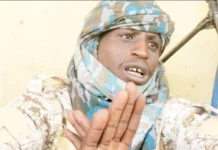By Chimezie Godfrey
The Chairman, Independent Corrupt Practices and Other Related Offences Commission, ICPC, Prof. Bolaji Owasanoye has said that the media plays an important role in the war against corruption.
Owasanoye gave the advice while virtually addressing media personnel who are participants at a Two – Day Capacity Building Workshop held on Tuesday at the Anti-Corruption Academy of Nigeria, ACAN.
The workshop which was organised by the ICPC was aimed at empowering the media as critical stakeholders in the fight against corruption and other related offences that have become endemic in the country.
The ICPC Boss remarked that the media plays a critical role in curbing corruption and in promoting the social development of the country.
He said,”This critical role of the media is constitutional as enshrined in Section 22 of the 1999 constitution of Nigeria, which empowers the media to hold the government to account.
“The first thing I want to underscore is of course the role of the media in social development, and this is constitutional. Section 22 of obliges the media to hold government to account.
“The media does this by reporting corruption and governance malfeasance. This is a very critical role that supports democratic stability and maturity.
“Investigative journalism is one of the growing form of journalism which is an important aspect of the role of the media in holding government to account.
“However, one of the things is that investigative journalism exposes corruption in governance wheresover it is found.”
Owasanoye noted that the anti-corruption fight must be handled with fundamental right principles, which he said binds both the media, law enforcement and anti-corruption agencies.
He cautioned the participants against bias reporting, which he revealed that is a growing phenomenon, while urging them to be fair to all sides in their reportage.
The ICPC Boss who pointed out that credible and diligent investigation takes time, advised journalists that the balance of their reportage should be in favour of public interest.
He concluded by reminding all stakeholders in the fight against corruption that ultimately the victims of no report or negative report will be everyone including the media and the anti-corruption agencies.
He therefore called for fruitful collaboration between the media and the commission.
In his remark, the Provost , ACAN, Prof. Olatunde Babawale noted that the ICPC has done so much and continues to Chun out initiatives aimed at preventing corruption and enforcing sanctions, in line with section 6 (a – f) of the Corrupt Practices and Other Related Offences Act 2000.
He however said that there are still much to be done towards citizens’ appreciation of ICPC’s initiatives as most of these efforts are either underreported or not reported at all, he therefore said the need to bring more partners on board becomes imperative.
Babawale pointed out that, given its strategic position as the fourth estate of the realm in a democratic setting, the media is expected to be an instrument of transparency, probity and accountability in the society, and a veritable partner in the war against corruption and its ills.
“There is inter-relationship between media and society. As the society impacts on the media, so do the media reflect on the society and impact on it. Undoubtedly, the mass media are important for the purpose of information, mobilization and agenda setting.
“Unfortunately, press freedom and available platforms for exposing corruption, like the freedom of Information Act, 2011 have not considerably translated into reducing corruption. Therefore, the import of this capacity building workshop, particularly in the context of the current war against corruption in the country cannot be overstated,” he said.
Babawale called on participants to take advantage of the learning sessions and make the most out of them.




